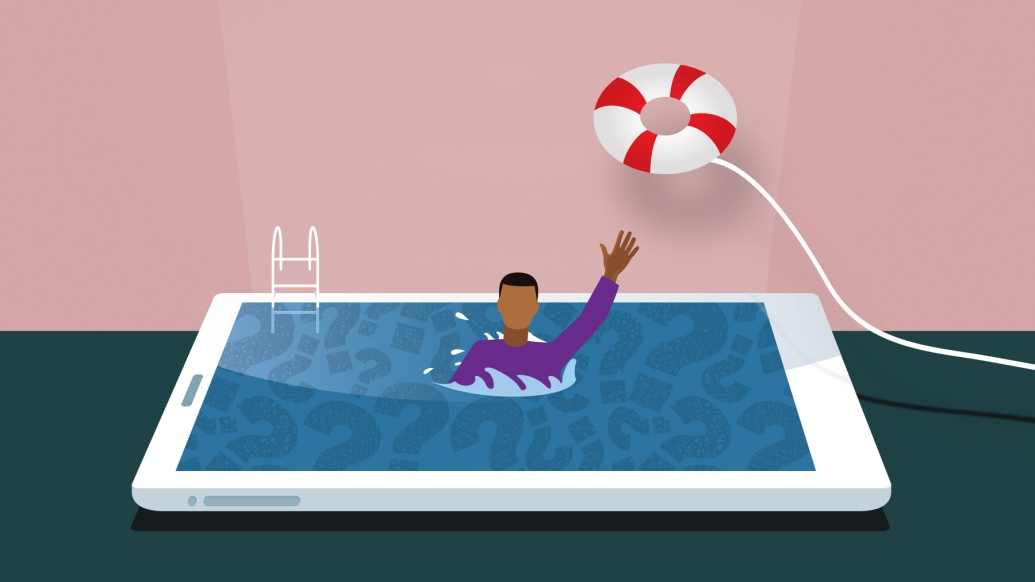Online resources for weight loss, mental health and more concerns are commonplace. But which actually work? A new paper offers science-backed options.
7:00 AM
Author |

When seeking advice online, you might know little about a source's credibility.
Anyone can claim to be a doctor. Or a therapist. Or an "expert" with a proven action plan to improve your well-being or kick an addiction.
MORE FROM MICHIGAN: Sign up for our weekly newsletter
So whom can you trust? And how might you ensure the advice is sound — and, ideally, delivers the results you want?
Researchers at the University of Michigan Medical School recently examined the wide landscape of web-based programs designed to help people help themselves.
Their goal: filter out lightweight or defunct sites in favor of the most effective and academically sound resources. To do so, they reviewed dozens of research papers that analyzed data from 1,733 studies about online self-help approaches.
"It is important that procedures are in place so that people know where to find information that is backed up by science," Mary Rogers, Ph.D., a research associate professor at U-M, said in an interview last month about the work.
But even for ones that meet those high standards, no program or method is a guarantee for every individual, the study's authors note. Still, overall, people who adhered to the approved self-help sites were more successful than those in a comparison group that did not.
A list of the top sites catering to English speakers is grouped by category below. Most sites are structured like coursework and may involve interactive elements or assignments to help participants reach their goals.
A complete list of the approved resources can also be found online as a PDF.
Alcohol consumption and cessation
Depression, anxiety and mental health
Diet, exercise and sleep
Pain management
Parenting

Explore a variety of healthcare news & stories by visiting the Health Lab home page for more articles.

Department of Communication at Michigan Medicine
Want top health & research news weekly? Sign up for Health Lab’s newsletters today!





